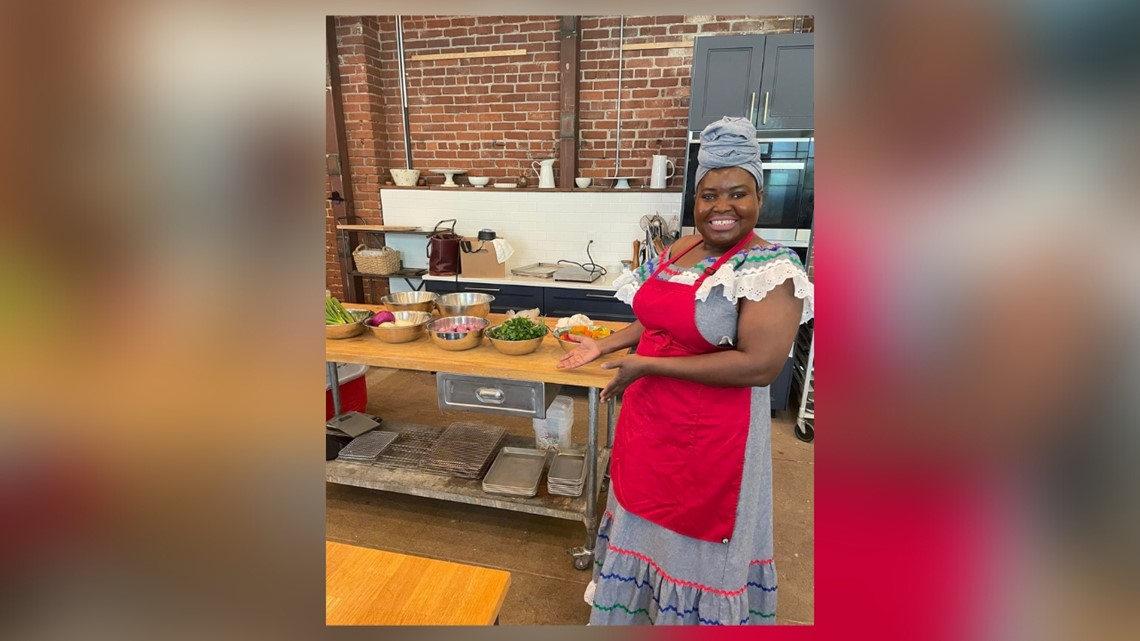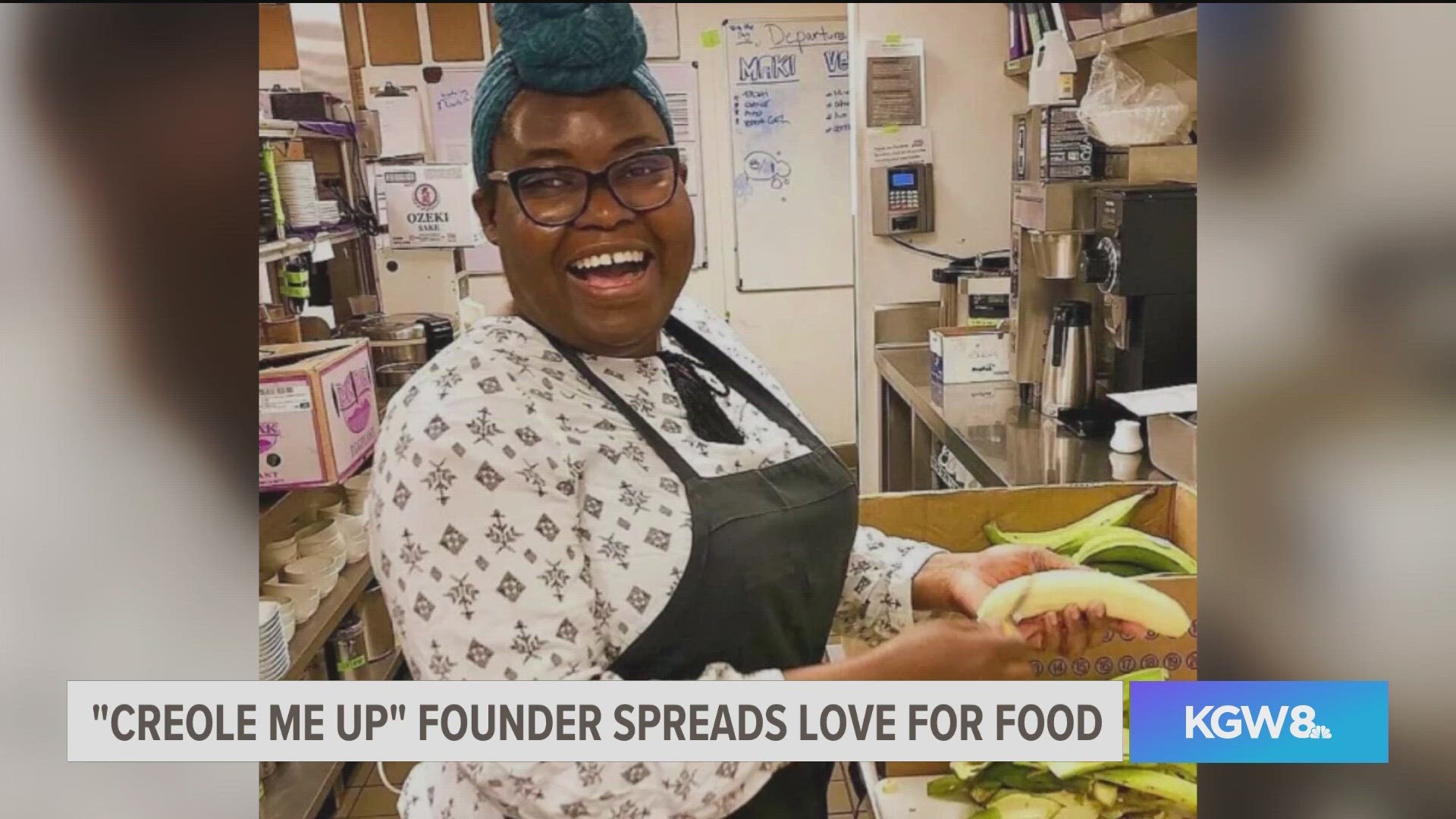PORTLAND, Ore. — Every week, rain or shine, you will most likely hear a sassy, larger-than-life, jubilant voice with a thick Haitian accent standing out at some farmer's market within the Portland metro area.
That voice belongs to Elsy Dinvil. She's the owner of her own brand, Creole Me Up — a successful company selling allergen-free Haitian style condiments, spreads, marinades and sauces that you can find at local retailers or farmers markets.
But many people probably don't understand how Dinvil's story is a tale of the beauty of struggle and ugliness within success. Dinvil believes each part of her story prepared her for this chapter in her life.

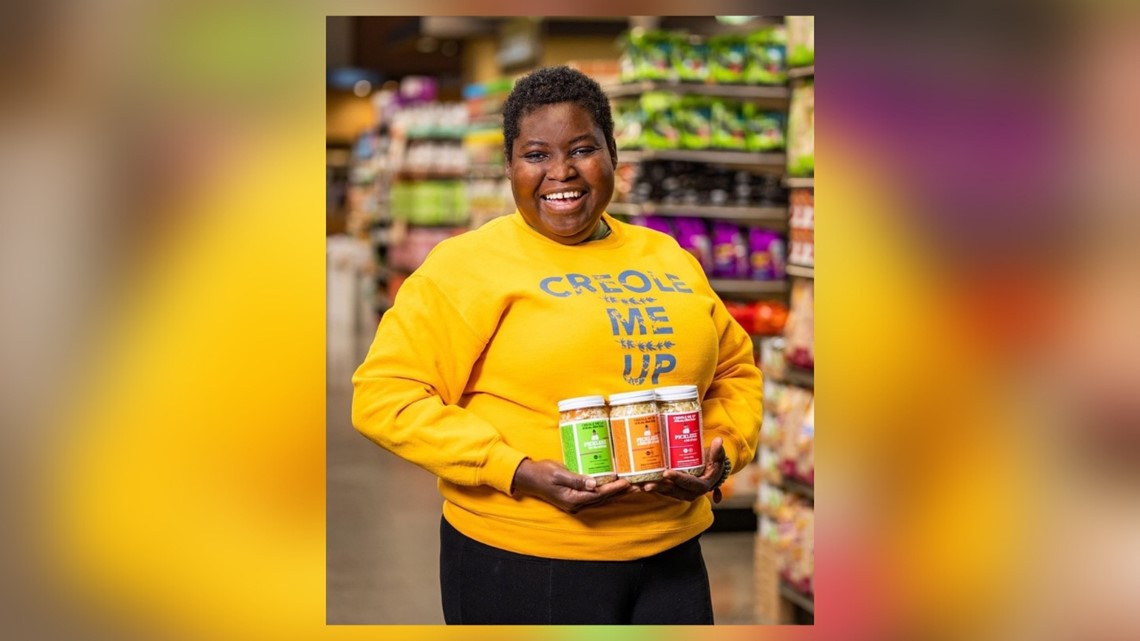
"I started over in Portland about five times, lost everything, start over, lost everything, start over again, lost everything, start over. Us Haitians are strong-minded, hard-working people no matter the circumstances. I had to learn from my experiences to be able to be where I am today in this thing called life," said Dinvil.
Dinvil learned to cook, like most people, at home. Home for her is in Jérémie, Haiti. She reminisced on her upbringing back home and adjusting to American culture.

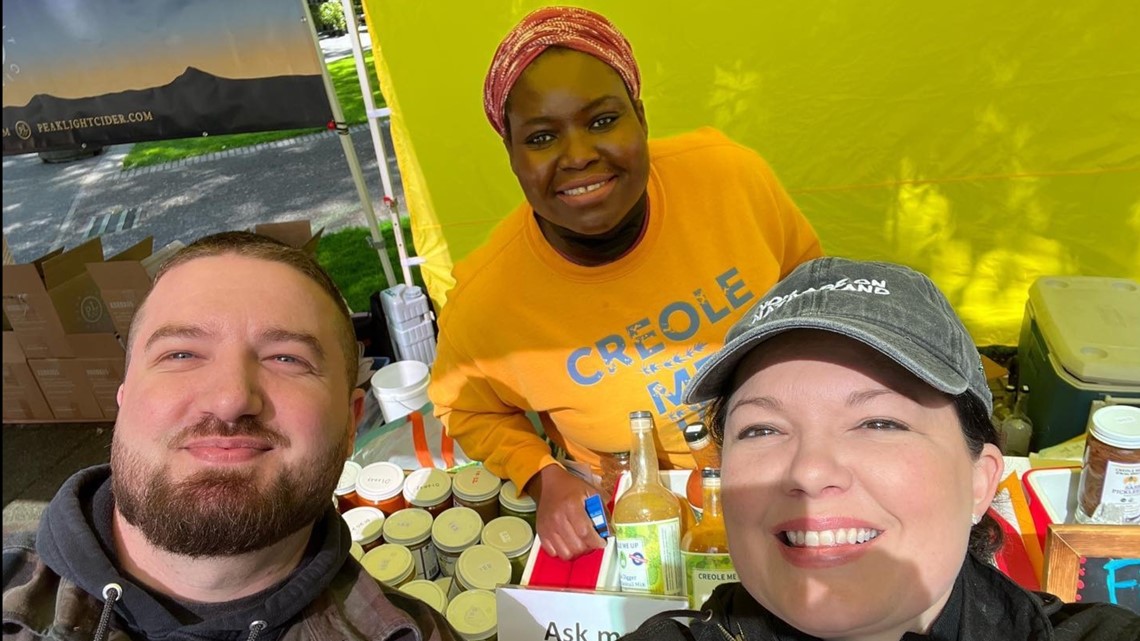
"Well, I mean there is no comparison. It's an island. The culture there is really laid back — I mean, when I was growing up — very laid back," Dinvil said. "When I got here, I got in so much trouble because in Haiti, if you say, you have a meeting at two, and you show up at five, it's still a meeting. But here — I mean, the first year it was a struggle to be on time because there is no timeframe for when you go out."
Dinvil grew up in a loving two-parent household, alongside her three siblings — all girls. Neighbors were like family, and truly it took a village to raise her.


"Your neighbors — I mean, the women especially — they are your mother. The men, they are your father. It's like a big community of people living together. You share your food — If you cook, you send some food to the neighbor. They cook some food and they'll send something right back. A community raised me," said Dinvil.

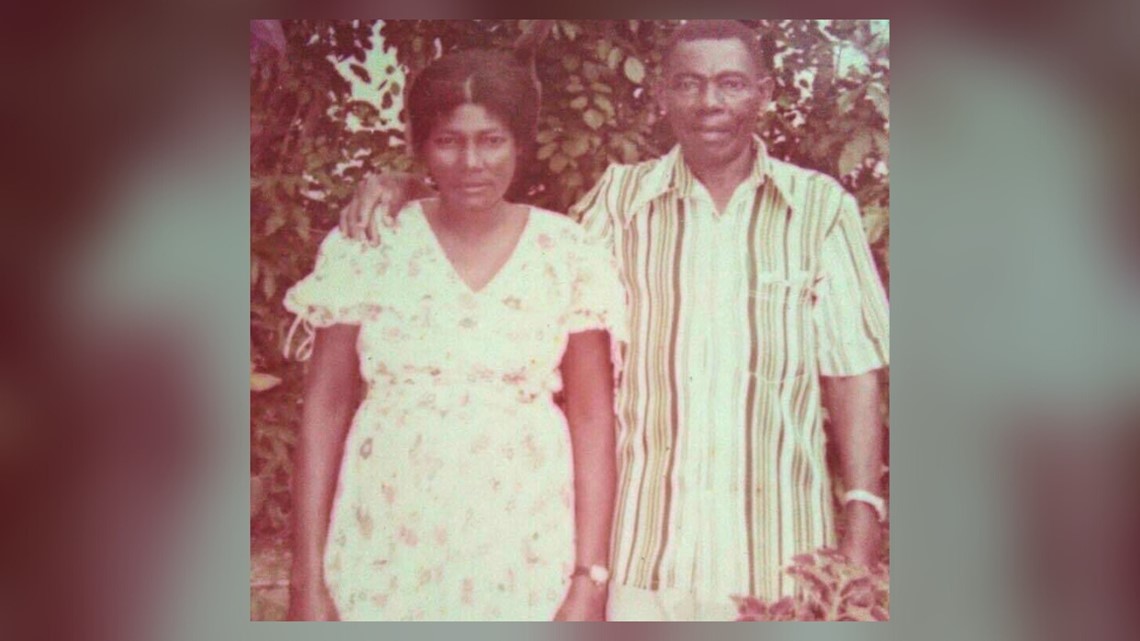
Dinvil's pride in her culture and sentimentality towards connecting with community stems from being forced to cook at a young age. It was part of her culture.
"In Haiti, you don't have a choice. If you are a girl, you don't have a choice. Your parents, if they are cooking, your mom or your aunt or your cousin they will wake you up at five, six o'clock in the morning to come pound the spices with a wooden mortar and pestle," said Dinvil. "The spices I refer to is 'epis,' which is the blend of green onions, garlic, thyme, green onions, black peppercorn, cloves and then you rinse it down with bitter orange juice. Fresh, fresh, bitter orange juice that you press yourself."

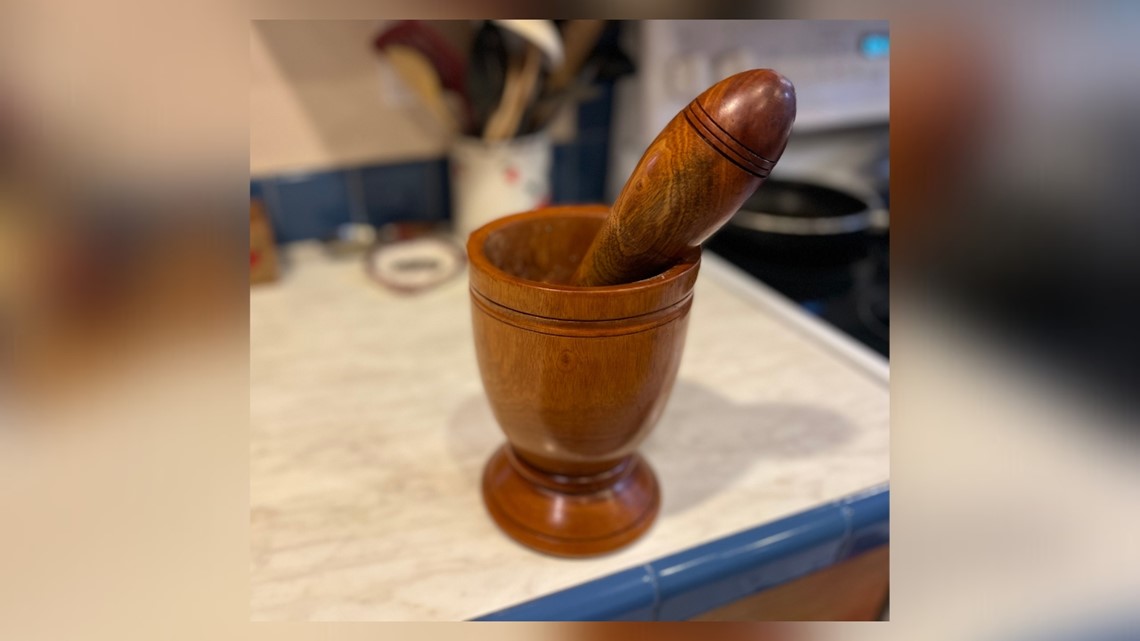
The epis blend she describes is essential in Haitian cooking and one of the most popular products for her brand.
Dinvil left the life she knew back home at 18 years old to take a chance on chasing down the American dream. She received a full-ride competitive scholarship in food sciences technology in 1991. As part of the scholarship agreement, she returned to Haiti for two years.
She returned to the United States in 1999 after working at the United States Agency for Development for two years and at CARE-Haiti for six years. She later earned her bachelor's degree, and just graduated with her master's in business at George Fox University in November of 2023.
One consistent theme in her life was her love for food, Haitian culture and sharing that passion.
"I left home when I was 18 years old. I lived with a host family and I used to cook for them. Any party I was invited to I would always bring Haitian fried chicken, or griot (marinated Haitian fried pork)," Dinvil said. "I always made food for people. I used to do get togethers with my friends for no reason. There was always that one person all the time telling me, 'You need to open a restaurant, you know that?'"
Within that 10-year period of earning her degrees and sharing her culture with her characteristically optimistic attitude, many were unwitting to the realities Dinvil faced behind closed doors. Dinvil was not only a student, she was also the breadwinner for her family back home. While supporting her family, she was struggling to keep up with piling medical bills as her health started to decline, which led to her having colon surgery.
"Well, I was sick on and off for six years, like running to the emergency rooms, Legacy Emmanuel Hospital, any hospital, because I was either constipated or I had diarrhea. It was like two extremes all the time I was dealing with," said Dinvil.
This contributed to her financial hardship, which led to her being homeless and living out of her 1989 Honda.
"I mean, it happened. Some nights I'll be in one location and other nights I didn't want to be discovered. I didn't want somebody to kind of like follow my pattern. What if somebody, you know, was tracking my car?" Dinvil recalled. "I had a piece of cable holding the hood and the bottom together. The passenger side, the driver door I couldn't open. I would have to go to the passenger door, stretch my leg to get to the driver's seat. But you know, I want to make a big shout to the Tigard Library for allowing me to clean myself there."
Despite being homeless, Dinvil still persisted with her daily routine, working hard as a breadwinner while faced with the shadows of reality. That kept up until she met an angel who transformed her life and gave her the wings she needed to take flight on her own — an angel by the name of Jaime Soltero, the owner of Tamale Boy. He showed her the ropes within the food industry business.
"Jaime Soltero, the owner of Tamale Boy, he's — you know, people talk about other people as their angel. He is my angel," said Dinvil.
Dinvil started to educate herself about healthy food options, which helped her take control over her health. Wanting to share her experience with others, she founded Creole Me Up in 2017.
With the help of the Oregon State University Food Innovation Center and a $10,000 loan from New Seasons, part of their new partner program, she was able to further expand her brand after starting it in 2017.
Today, Dinvil is in a better space and has written many books sharing the gems that sparked change within her life. She is constantly releasing new products and sharing her story; a story of resilience, optimism, community, culture, determination and hope that form the structures that not only gave birth to Creole Me Up, but shifted Dinvil's outlook on life for the better.
"I'm very content with my stage of life, very content, but that doesn't mean I don't dream big dreams or I don't dream bigger dreams," Dinvil said. "But whatever it is that I'm doing, I enjoy it. I make sure to enjoy the moment. That's my motto, 'Enjoy the moment.' Don't make big moves and enjoy the pleasure that the current moments provides."

